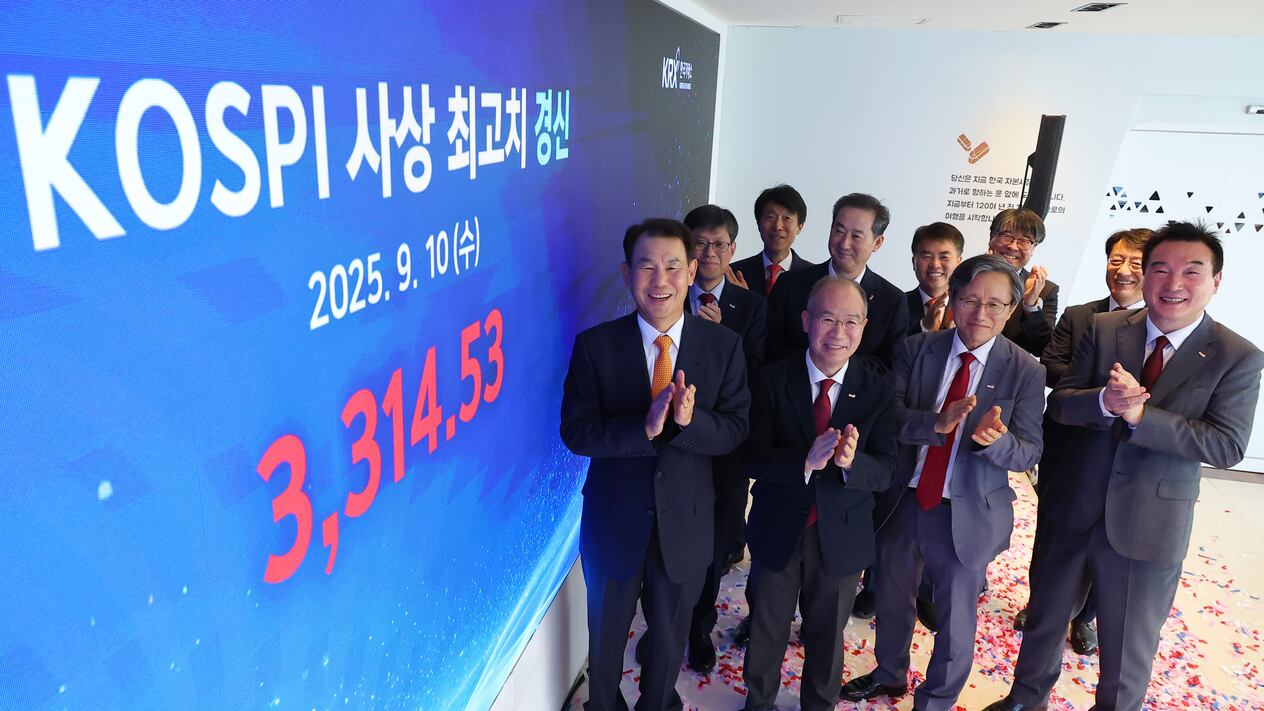South Korea’s Kospi Breaks Record High as Trade Optimism and IMF Growth Upgrade Fuel Investor Confidence
South Korea’s Kospi Breaks Record High as Trade Optimism and IMF Growth Upgrade Fuel Investor Confidence
By
Junia Wells
Last updated:
October 16, 2025
First Published:
November 30, 2025

Asia-Pacific Markets Surge on Renewed Optimism
Asian stock markets rallied Thursday, with South Korea’s Kospi index reaching an all-time high, fueled by trade optimism and stronger economic projections from the International Monetary Fund (IMF). The IMF revised South Korea’s 2025 GDP growth forecast upward to 0.9% from 0.8%, reflecting resilient domestic demand and recovering global trade momentum.
The global economy also received a slight boost in outlook, as the IMF noted that the impact of U.S. tariffs remained “modest,” supported by the adaptability of international supply chains and renewed trade agreements among major economies.
Trade Talks and Tech Stocks Drive Kospi’s Momentum
The Kospi index gained 1.09%, marking its highest close ever, led by sharp gains in technology and automobile stocks. U.S. Treasury Secretary Scott Bessent told CNBC that Washington and Seoul are “about to finish up” trade negotiations, signaling a potential deal that could ease trade uncertainties and open new avenues for South Korean exports.
“The devil’s in the details, but we’re ironing them out,” Bessent said, indicating progress toward finalizing a bilateral trade framework.
Tech giants and automakers led the charge:
- Samsung Electronics jumped 2.32% to an all-time high, buoyed by robust demand for semiconductors and AI-related products.
- Hyundai Motor surged 8%, while Kia Corp climbed 7%, reflecting renewed investor confidence in South Korea’s manufacturing and export sectors.
- SK Hynix, a major memory chip producer, saw shares leap 6.1%, boosted by expectations of strong chip demand in 2025.
However, SK Inc., one of South Korea’s largest conglomerates, fell 5% following news that the Supreme Court partially overturned a prior ruling on Chairman Chey Tae-won’s $1 billion divorce settlement.
Australia and Japan Join the Rally
In Australia, the S&P/ASX 200 also touched record levels despite a weaker-than-expected jobs report. The unemployment rate rose to 4.5%, its highest in nearly four years, while employment increased by just 14,900—short of the 20,000 forecast. Economists suggest the softer labor data could give the Reserve Bank of Australia more room to consider rate cuts in the coming months, fueling investor enthusiasm.
Japan’s Nikkei 225 gained 0.95%, and the Topix index advanced 0.8%, with exporters benefiting from a slightly weaker yen and optimism over regional trade progress.
Mixed Signals Across the Rest of Asia
Elsewhere, Hong Kong’s Hang Seng Index slipped 0.5%, and the Hang Seng Tech Index fell 1.53%, weighed down by concerns over regulatory pressures and earnings from Chinese tech firms. On the mainland, the CSI 300 managed a modest 0.52% rise as investors reacted positively to Beijing’s latest measures to stabilize the property sector.
India’s Nifty 50 rose 0.34%, while the Sensex edged up 0.23%, supported by gains in IT and financial sectors as foreign institutional investors continued buying local equities.
Global Market Overview
U.S. equity futures remained flat in early Asian trading after a mixed overnight session on Wall Street. The Dow Jones Industrial Average ended slightly lower, down 17.15 points (0.04%) at 46,253.31, while the S&P 500 closed 0.4% higher at 6,671.06, and the Nasdaq Composite rose 0.7% to 22,670.08.
The Cboe Volatility Index (VIX), Wall Street’s “fear gauge,” climbed above 21.6 last week, its highest since May, reflecting investor caution amid ongoing trade and political uncertainty.
Outlook: Momentum Fueled by Policy and Trade Stability
Investors are closely watching how trade negotiations between the U.S. and South Korea unfold, as a finalized agreement could further boost exports and industrial output in Asia’s fourth-largest economy. Meanwhile, the IMF’s upgraded projections provide confidence that global trade and manufacturing activity are stabilizing after months of volatility.
With semiconductor demand surging, automakers expanding EV production, and central banks signaling policy flexibility, analysts expect the Kospi’s momentum to continue—potentially marking the start of a strong year-end rally across Asian equities.
Popular articles
Subscribe to unlock premium content
Gilded Holidays in Fashion

How HBO Max Used the Power of Limited Series to Redefine Streaming Competition and Challenge Netflix’s Binge Culture

How Stranger Things Revolutionized Netflix and Redefined Streaming Entertainment

Gilded Holidays in Fashion

How HBO Max Used the Power of Limited Series to Redefine Streaming Competition and Challenge Netflix’s Binge Culture

Gilded Holidays in Fashion









